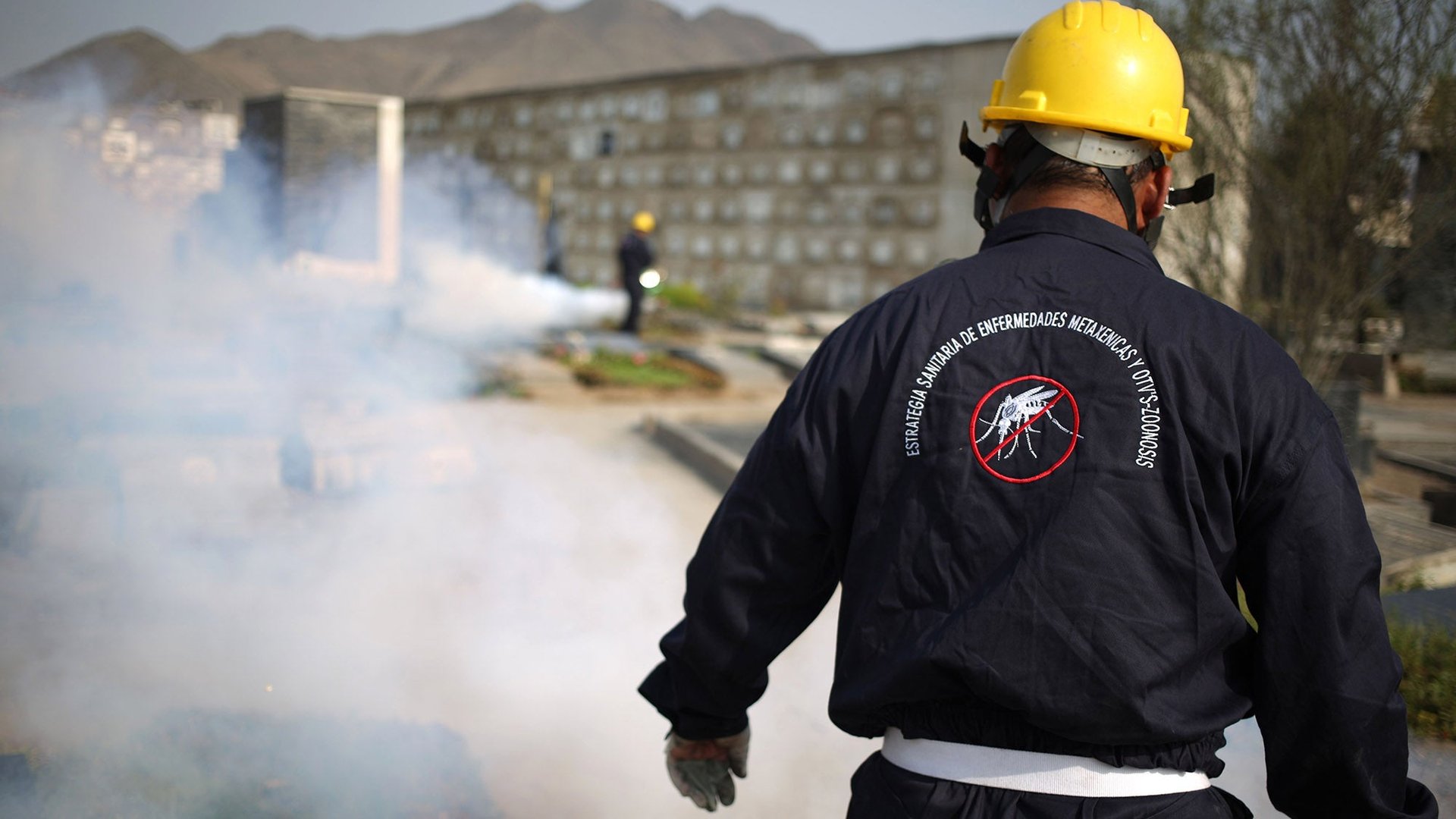The rapidly spreading Zika virus has now been linked to another life-threatening disease
Nothing seems to be stopping the rapid spread of Zika, a mosquito-borne disease. In less than six months, the latest Zika outbreak has spread from Brazil—where the government estimates there have been 1.5 million cases—to 20 other countries in Central and South America. There are also reports that the outbreak may have reached Southeast Asia.


Nothing seems to be stopping the rapid spread of Zika, a mosquito-borne disease. In less than six months, the latest Zika outbreak has spread from Brazil—where the government estimates there have been 1.5 million cases—to 20 other countries in Central and South America. There are also reports that the outbreak may have reached Southeast Asia.
For many months after the epidemic began, the virus was thought to be mostly benign in adults. It sometimes caused fever, rashes, and joint pain, but people recovered. Then, in late 2015, Brazilian authorities drew a link between Zika and microcephaly, a rare disease where children are born with abnormally small brains, and usually die young. Though the link is yet to be proven, health authorities have been warning pregnant women to take extra precautions. Four countries have even asked women to postpone pregnancy, if they can.
Now, it seems even adults may not be spared. The World Health Organization is investigating whether Zika virus may be causing another rare, potentially life-threatening disease: Guillain-Barré syndrome (GBS). The symptoms start with numbness, tingling, or pain in muscles, and it can rapidly cause paralysis or even death.
“It felt like I was drowning in a sea of mud,” a survivor of GBS in Brazil told the New York Times (paywall). “I became motionless and thought I would die. All of this happened just a few days after I had Zika.”
GBS is caused because something, such as an infection, triggers the immune system to start attacking the body’s peripheral nervous system, which—among other functions—controls the communication between muscles and the brain. The most common treatment involves removing a patient’s blood, discarding the plasma, and then putting back red and white blood cells. Some people are also treated using antibodies found in healthy donors’ blood.
The condition was so rare that, until recently, Brazilian authorities didn’t require its incidence to be reported. However, doctors dealing with GBS cases have been reporting an steep increase in occurrences. The best estimates available are from El Salvador, which is also suffering from a Zika epidemic. Its health authority says that, in December, there were more than three times the average number of GBS cases.
Unlike with microcephaly, which hadn’t shown any increase during Zika epidemics before the one that hit Brazil, there is some prior evidence for Zika’s link with GBS. In a 2013 Zika outbreak in French Polynesia, the country recorded 42 cases of GBS, when it had previously averaged fewer than five a year.
“There is not much we can do to stop these infections,” Nikos Vasilakis, an infectious disease specialist at the University of Texas Medical Branch, told Quartz. “Singapore has one of the world’s most advanced mosquito-control program and yet it sees cases of mosquito-borne diseases every year.”
All countries can do is continue to invest in mosquito-control programs and surveillance of diseases, Vasilakis suggests. At an individual level, people should do all they can to avoid mosquito bites: use repellants, wear long sleeves, and sleep under nets.